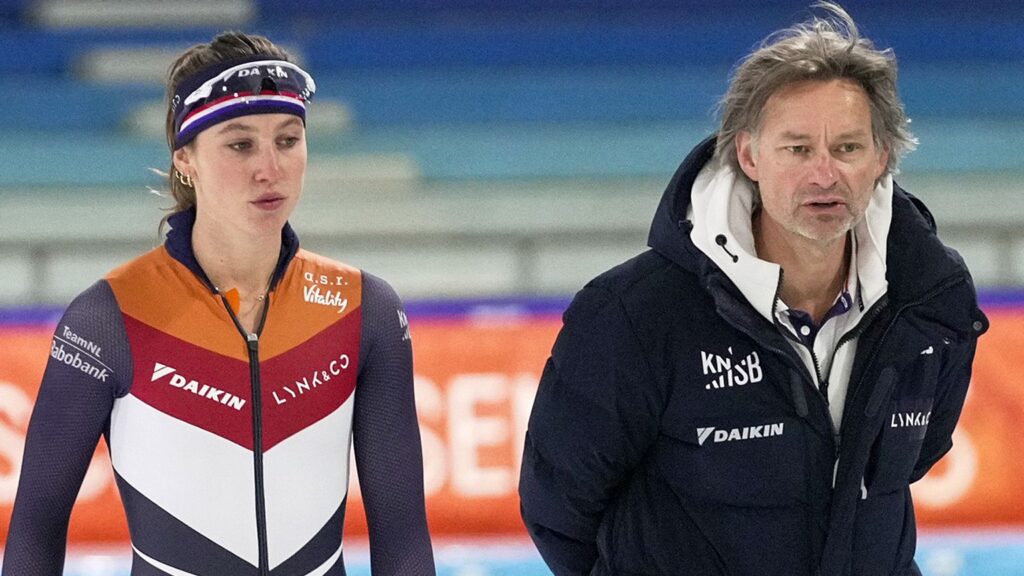Harry is a successful entrepreneur, and his company has been growing steadily. He knows what he has in the employees who have been with him since the beginning. A half-word is enough.
With growth comes not only increased revenue but also more people. Along the way, Harry realizes that a half-word is no longer enough for the new employees. What was once obvious is no longer so. The pertinent question arises: “How do I get everyone on the same page?” And: “How do I manage growth?”. These are often the moments when I begin guiding an organization and its leaders. Each time, I find it a wonderful challenge to explore what is needed and how the company can further scale. That’s what I mean by “going for gold”. And the role of the entrepreneur is crucial here. Harry got to work and learned the ins and outs of coaching leadership.
The role of the entrepreneur
The role of the entrepreneur is crucial for the further growth of the company. Besides being the owner of the business, you are also the leader of the business, which inherently means you have a role model. Whether you like it or not. With organizational growth comes the necessity for the entrepreneur to rapidly develop into a manager and leader. Into a coaching leader. Into a coaching leader of a growing organization. The faster and better you achieve this, the more your organization grows and the more you align the team (again) in the right direction.
A top athlete is not necessarily a good sports coach
As an entrepreneur, you are an athlete, right? And the art is now to become a good sports coach. Sometimes it turns out that an entrepreneur is not at all interested in making employees and the organization stronger. He mainly wants to keep on doing business without taking responsibility for the employees. I’ve experienced this a few times. In that case, the entrepreneur is still responsible for adequately leading the organization in the beginning. But he will (quickly) need to find another director who will take over the leadership of the organization. In all other cases, the entrepreneur needs to be prepared to lead his or her organization and people. To lead as a top sports coach.
Your best manager, your role model
I often ask the question “think back to the period when you worked for the best manager you ever had? What was it that you appreciated about him/her?”. The answers usually include:
- I was treated as an individual, as a human being;
- he genuinely cared about me and us as a team;
- she was interested in my development;
- we were listened to and could contribute ideas;
- there was open communication, and our opinions were respected.
Coaching Leadership
What are the key coaching skills that a leader has or should develop?
Leadership is no longer directive but a coaching and supportive process toward employees with the aim of developing and motivating them. The most important thing is for employees to learn to take responsibility (dare to) and to work more independently. How do you do that and what are the key requirements?
- Peak performance mindset
In coaching leadership, you concentrate and focus on an appropriate mindset and behavior. That is the basis. And that is more important than skills. Not just fitting, but you want to create an optimal mindset, a peak performance mindset. A peak performance mindset focuses on possibilities, not on impossibilities. And with the right mindset comes curiosity: how can I improve or do things differently? Here’s how you achieve a peak performance mindset. With the right mindset, you quickly become a role model for others. - Respect and trust your employees
A peak performance mindset also includes a basic attitude of respect and trust. You may and must be critical, but with the right basic attitude, you give employees room to grow and take control. This also means that you can assume that everyone is doing their best with the resources they have. And acting from their unique, individual worldview. That worldview doesn’t have to be the same as that of the leader. When you delve into the worldview of others, of your employees, it means that you make an effort to understand them. And it means that you park your own worldview, your own opinion for a moment. You’ll be amazed at what you discover and how much better understood the employees feel. Read more about how to gain the trust of your team. - Ask powerful questions
To discover that worldview and understand why someone acts or thinks in a certain way, it’s important that you ask good questions. That strengthens your coaching leadership. Usually easier said than done. Good questions not only provide a lot of (extra) information but also teach employees to think more for themselves and come up with solutions. Furthermore, it helps you better understand who needs what support. In general, good questions are ‘open questions’. They usually start with: how, what, where, what makes it that…..? - Listen more and talk less
Listening, really listening. Easily said, but few master the art. It’s no coincidence that good salespeople are good listeners (so how many good salespeople are there really?). The same goes for leaders. If you can listen without prejudice, you hear more and learn more. And you create a basis for asking follow-up questions. - Give and ask for feedback
I consider feedback the most underestimated skill. Most think they know and say they do, but giving and receiving good feedback requires courage and vulnerability.
A good leader constantly asks employees and customers for feedback on what works, what doesn’t work, what can be improved. And what the respective employee needs to continue developing.






